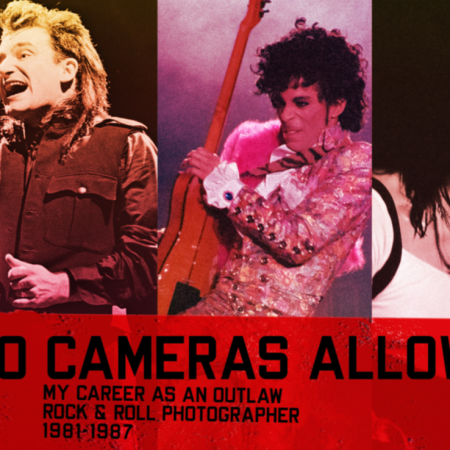The only thing more tedious than U2 are the people who enjoy slagging them. For much of the band’s history, it’s been fashionable to roll our collective eyes at them — mocking their earnestness, their ardent belief that music can enrich the soul and their utter uncoolness. But mostly, for having perhaps the most insufferable of lead singers. When people hate U2, what they’re actually despising is Bono, who treats his calling with the seriousness of a saint — appropriate for a lyricist who mentions God with the frequency he does.
The man born Paul David Hewson isn’t just the frontman but also the face of the immensely popular, spectacularly divisive rock group — a face that many would like to (metaphorically) punch. In public, Bono can come across as highfalutin, immensely pleased with himself and more than a little immodest. I’ve never forgotten reading in Killing Bono, a memoir by music journalist Neil McCormick, who grew up with Bono, that Bono’s wife Ali would make him stay in a hotel for a little while after U2 came home from a world tour. Apparently, she wanted Bono to decompress before reentering her orbit — he had to transition back to being a normal husband and father after crisscrossing the globe as a rock star.
That behind-the-scenes detail doesn’t appear in Surrender, the new autobiography written by Bono, but there’s nothing in its 550-plus pages that would make me think it isn’t true. Now 62, the singer is more than willing to examine his faults, which include his ego, his temper and his artistic restlessness — all the while causing strain in his now-40-year marriage and with his band members, who he’s been with just about as long as he’s known his wife. But beyond the author’s steady stream of self-criticism, Surrender is notable for another reason: Despite Bono’s tendency toward purplish prose and showy flourishes, he makes the case for himself as a complicated and compelling artist and thinker, even while acknowledging that many people can’t stand him. I imagine most who read Surrender will do so because they’re fans — they love the group and don’t care what the U2 detractors have to say — but for the millions of us who admire the band at their best, have experienced our moments of absolute devotion to them, but eventually cooled, the book may help us remember why we cared in the first place. Bono remains insufferable in lots of ways, including at times in his memoir. But he’s simply too thoughtful, too honest, too smart, too searching and, frankly, too fascinating to dismiss outright. Surrender is as close to a solo project as the man will probably ever get. And unlike most solo projects, this one is pretty momentous.
The book’s subtitle, “40 Songs, One Story,” explains its conceit: In mostly chronological order, Bono looks back at his life, tying each of the 40 chapters to individual U2 tunes. Some of the chapters — say, “Bullet the Blue Sky” or “Vertigo” — go into specifics about how that particular song was written, but more often than not, Bono is thinking thematically, using a song’s meaning to express a larger idea. (The “I Still Haven’t Found What I’m Looking For” chapter appears very near the end, describing his spiritual wanderlust that has yet to be sated.) Generally knowledgeable about this band’s origins — drummer Larry Mullen Jr. puts an ad on a bulletin board looking for musicians to play with him, the rest is history — I can’t speak to the amount of never-before-heard anecdotes that might be revelations to diehard fans. That said, Surrender is hardly a tell-all or a chance for Bono to settle scores with his bandmates. (As Bono mentions in the memoir, the group has been steadfast in not criticizing each other in public.) Instead, Surrender is an emotional snapshot, an extended coming-of-age narrative about a guy who lost his mom early, married young, and had to figure out how to be a superstar, a partner, a father and a grownup. Not necessarily in that order.
Before U2, frontmen of rock bands generally came in the Mick Jagger/Jim Morrison/Robert Plant sex-god mode. Bono was different, inspired by the rising wave of punk rock that was changing music in the late 1970s when he and his bandmates — Mullen, guitarist the Edge and bassist Adam Clayton — were starting out. Enamored with William Blake and Bob Dylan, Bono saw himself more as a poet and an artist than a macho hedonist. (In Surrender, Bono observes that the “sex, drugs and rock ‘n’ roll” ethos was not something his band pursued too strenuously — save for the addiction issues that Clayton later faced and beat back.) To be sure, Bono was as beautiful as any of his lead-singer forbearers, but he evinced a sensitivity that wasn’t so common for the time.
But that didn’t mean he was some melancholy wallflower. What’s abundantly clear from Surrender is that the man definitely wanted his band to be huge — and that his bandmates did, too. In the book’s early sections, Bono breezily and grippingly recounts U2’s salad days as they try to expand beyond their Dublin homebase to get noticed in London. It’s downright charming to read about a scrappy young Bono pluckily putting the group’s demos in the hands of influential music magazines, hoping to generate some buzz. Like with music biopics, one of the pleasures of Surrender is that it robustly tells a story we’ve heard a million times and yet never tire of: Here is how this artist you love became the artist you love. Bono’s telling is especially strong because of the amount of detail he provides, aided by his gift for the dramatic. (Their longtime manager Paul McGuinness, instrumental in their rise, is positioned as a wise sage and tough-love dispenser, a no-nonsense foil that pushes Bono and the band to be disciplined about their career — and, crucially, to think about the business of music as much as the music itself.)
All the while, U2’s rise is complemented by the singer’s recollections of his developing relationship with Ali. There are two love stories going on in Surrender: Many may go into the book more interested in Bono’s bond with the group, but as important as that partnership remains to him, it can’t compare to the deep, abiding adoration he has for his wife. That devotion isn’t presented in some syrupy, simplistic way — anyone in a long, happy marriage will recognize this portrait of a couple that’s evolved beyond the easy spark of initial hormones to something far richer and more complex that requires work to sustain. Like Taylor Swift, Bono is painfully aware that the problem is him — that he’s the immature one in their marriage, that he’s the one who often falls short as a partner — without ever painting his spouse as some silently suffering victim. Fittingly, she has some of the book’s best lines, cutting through his moony musings with blunt wisdom. “Don’t look up to me or down on me; look across for me,” Ali tells him at one point, “I’m here” — an apt encapsulation of the smart, suffer-no-fools woman he sketches over the course of Surrender who he knows he’s lucky to have found.
You’ll walk away from the book agreeing with him. Bono doesn’t deny that he’s a handful, but his too-much-ness is just as evident when he’s not owning up to his competitiveness and impatience. As a lyricist, Bono has a weakness for the overly poetic turn of phrase — the too-clever-by-half observation — and, if anything, that tendency is even more apparent in Surrender. I just now opened the book to a random page to find an example, and Bono didn’t disappoint: “Mockery can be a delightfully dangerous weapon. Dada unzips the fascist male and pulls down his combat pants, exposing him to ridicule.” It is both Bono’s great gift and his frustrating limitation that he loves the way words can swirl and play. He doesn’t simply express a thought — he adorns it colorfully, fervently, with a little ta-da at the end to make sure you notice. This fault of his extends to everything he does: In Surrender he admits to taking on too many projects, staying out a little later than he should, consistently pushing his band to dismantle their sound to try something new. In both his life and his art, Bono is a lot.
And yet, the more time I spent with Surrender (and its author), the more I was touched by the very real wrestling going on within one of the world’s richest, most successful musicians. If Bono’s grandiosity can be tiresome in his work — perhaps no major rock figure has so strenuously emoted his vocals as he has — in the book it’s matched by a ferocious self-questioning, a willingness to pick himself apart in the hopes that maybe he can understand why he is the way he is.
This is especially affecting during later sections of the book as Bono talks about his 21st-century self, a period in which he’s been a little less focused on U2 and more concerned about his different philanthropic projects. Snicker at celebrities stumping for causes all you want — and Bono is as easy a target as any — but when he writes about debt forgiveness, AIDS treatment and global poverty, there’s a seriousness of purpose that wipes away any doubt of his commitment. Without self-aggrandizing, his memories of working with Congress and different U.S. presidents to help imperiled African nations prove exhausting in the best way — you feel the endless, grueling hours of preparation and study that went into transforming this punk-loving Dublin kid into a polished, informed emissary for some of the planet’s most pressing issues. His humility, paired with his frustration that he didn’t accomplish more, is refreshing and convincing. It’s so persuasive, in fact, that when he allocates a couple sentences to sticking up for Sean Penn’s globe-trotting activism — complaining that the actor’s critics don’t appreciate how devoted he is to helping others — it almost makes you wonder if you’ve misjudged him as well.
Rock’n’Roll Won’t Die, No Matter What U2 Says
The music industry as we knew is gone, but rock will survive.Those seeking a little dish will be intrigued to know that Bono comments on some of the band’s more controversial moments. He talks about the debacle that was the iTunes release of U2’s 2014 album Songs of Innocence. He briefly discusses the public backlash following the group’s decision to move some of their financial interests from Ireland to the Netherlands to avoid taxes. But, perhaps not surprisingly, the business matters take a backseat to Surrender’s recounting of personal tragedies.
It’s worth pointing out that, despite a career that’s spanned so many decades, no one in U2 has left the group — no one has died and been replaced. This is almost unheard of in the history of rock ‘n’ roll — and, likewise, Bono’s marriage remains intact. Few superstars have known such stability, which is probably why the losses the frontman has had to absorb have hit him so hard. McGuinness’ 2013 decision to stop representing the band is given special attention — Bono’s writing is especially bittersweet and bighearted in that section — but it can’t compare to the death of his father and friends. (His mother Iris’ passing when he was a boy left a different kind of scar: His dad, his brother and he simply never mentioned her again in their home, as if refusing to speak her name would somehow magically make the pain go away.) Most will know that the band’s sublime “Stuck in a Moment You Can’t Get Out Of” was inspired by Bono’s friendship with INXS singer Michael Hutchence, who took his own life in 1997, but few will be prepared for how eloquent he is discussing his departed mate 25 years later in Surrender.
As verbose and gushing as Bono can be, his memoir is also filled with subtle, beautiful little moments. (One in particular that has stayed with me is a quiet act of friendship Clayton does for him on stage during a particularly fraught concert.) If Bono sometimes sounds like a pain in the ass — a guy who loves name-dropping his famous buddies and bragging about all the fabulous places he’s been — Surrender argues that obscenely pampered rock stars have feelings, too. One of the book’s tricks is making you see the insecure guy underneath the shades — a singer who never felt that natural on stage, blown away that his young son seems freer in front of a crowd than the old man. And for all his global do-gooding, Bono has learned just how wrongheaded the impulse can be if advocacy isn’t properly executed, ridiculing the faulty assumptions that he and his ilk make in the name of “helping” those in need. Surrender is the story of a man who wanted to change the world — through a song, through philanthropic enterprises — and ended up dissecting his motives, seeking to do good but for the right reasons.
Throughout Surrender, whether discussing his music, his marriage or his advocacy, Bono seems to be grasping for answers, trying to find a way to tie together the disparate threads of his life. At the height of U2’s stardom, somewhere around The Joshua Tree, McGuinness makes a comment to Bono about the stupidity of being so shortsighted as to not enjoy being successful, which was very much the mode that the dour-faced, self-absorbed band was in at that time. In a sense, Bono has used his memoir to apply that advice to his whole being. Gratitude is Surrender’s prevailing sentiment, especially in the final chapters. But there’s also uncertainty — about the band’s future, about his health. (One wishes he had written more about the glaucoma and voice issues that have plagued him in recent years — as well as a serious 2014 bicycle accident that’s only briefly alluded to.) He discusses the group’s underrated 2009 song “Moment of Surrender,” which is about letting go of certain things — not in defeat but, rather, in victory. It’s a lovely idea, but the churning, perpetually dissatisfied Bono isn’t sure he’ll ever quite wrap his head around it.
After finishing Surrender, impressed and moved, I made the mistake of watching Bono’s recent appearance on The Late Show With Stephen Colbert. He was there to hawk the book, but it mostly just reminded me of the Bono that I don’t much like: He was trying to be witty; trying to project the air of a fascinating, debonair soul; trying to act like a sophisticated rock star. This is the Bono that makes people hate U2. Normally, I’d have just shut it off and not given the appearance a second thought. But Surrender may prompt you to see this man in a different light — insufferable, maybe, but also eternally wrestling with a feeling of not being comfortable in his own skin. That imperfect public persona is what he’s come up with to combat those feelings — this soulful book explains what’s going on underneath.
This article was featured in the InsideHook newsletter. Sign up now.






















